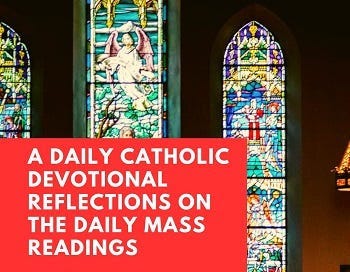Matthew 9:14-17
14 Then came to him the disciples of John, saying: Why do we and the Pharisees fast often, but thy disciples do not fast? 15 And Jesus said to them: Can the children of the bridegroom mourn, as long as the bridegroom is with them? But the days will come, when the bridegroom shall be taken away from them, and then they shall fast.
16 And nobody putteth a piece of raw cloth unto an old garment. For it taketh away the fulness thereof from the garment, and there is made a greater rent. 17 Neither do they put new wine into old bottles. Otherwise the bottles break, and the wine runneth out, and the bottles perish. But new wine they put into new bottles: and both are preserved.
Once again, Jesus was upsetting the religious order of the time. The Pharisees, as He explained in another passage, made a great performance of fasting. They wanted their sacrifice to be recognized and respected by men. The message of Saint John the Baptist was one of repentance – his followers fasted and lived monastic lives in reparation for the sins of their people. Jesus both instructed His disciples to violate the norms of the Jewish Sabbath, but also not to fast on the days in which fasting was observed. He reminds us though, that after His ascension to Heaven, Christians would indeed fast.
The history of the early Church and the writings of the saints throughout the centuries tell us of many pious Catholics who observed rigorous fasting as part of their holy lives. We are also told of community wide fasts that averted wars and famines. God hears the prayers of His faithful, especially in penitent fasting. As Catholics, we continue to fast on certain days and seasons. We fast and abstain from meat during Lent and Advent, especially on Fridays. We also fast for at least an hour before receiving the Eucharist if medically possible. This is very good and the more we incorporate such practices into our lives, the more we may truly live our faith and strive for holiness. But, we must not forget to feast and celebrate either!
Rarely is it taught in school these days that in early America major religious holidays such as Christmas and Easter were not celebrated. The Anglicans and Puritans that mostly founded America and settled her cities before waves of Catholic immigration around 1900 were opposed to holidays, parades, decoration etc. - they considered them “pagan” Catholic practices. In several states, observance of Christian holidays was outlawed.
Catholics, you see, both fast on Good Friday and feast on Easter Sunday – we are Sunday people, the new man full of joy in Christ. Observing liturgical seasons and feast days is an essential part of our Christian religion. Unlike Protestants we have our Lord, the Bridegroom, with us both physically and spiritually at every Holy Mass. Jesus gave us new life, a new religion, a new sabbath, new holy days and the wonderfully rich tradition that is Catholicism. We both fast and feast, and we do so in the Lord.
Judson Carroll is the author of several books, including his newest, A Daily Catholic Devotional, Reflections on the Daily Mass Readings July-December, 2025 It is Available in paperback on Amazon: https://www.amazon.com/dp/B0F5BHFZ7X
and
Confirmation, an Autobiography of Faith. It is also Available in paperback on Amazon: https://www.amazon.com/dp/B0C47Q1JNK
His podcast is The Uncensored Catholic https://www.spreaker.com/show/the-uncensored-catholic





I read somewhere that fasting is only meritorious when done as a penance, not when done for other reasons (health). I can't remember where I read it. (Could have been in the Catechism?) So my question is, how do you know for sure your fast or abstinence is meritorious?
Also, should I feel guilty if there was a bit of leftover butter in the bottom of yesterday's bowl of spinach?